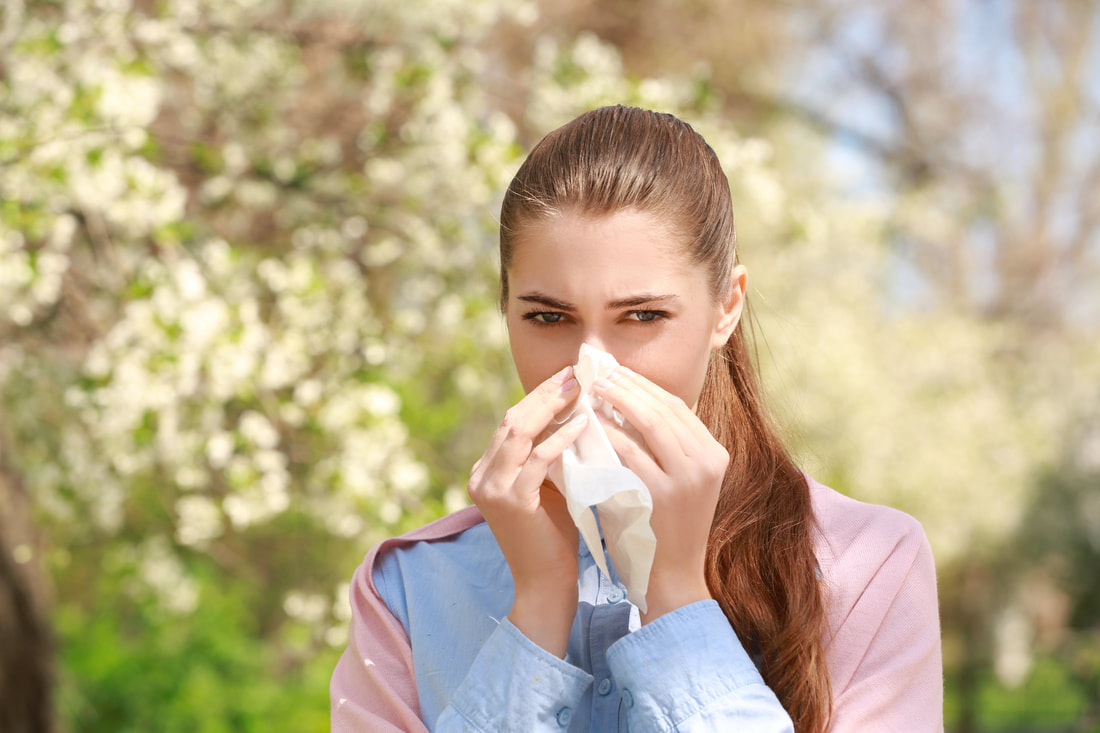Are you prepared for spring allergens?
6 tips for managing allergy triggers
(BPT) - Many people are looking forward to the warmer months ahead, but spring means allergies for many Americans. According to the Asthma and Allergy Foundation of America, more than 50 million Americans experience various types of allergy symptoms every year including:* Sneezing
* Itchy eyes
* A runny nose
* A scratchy throat
* Coughing
"Spring allergy season comes earlier, lasts longer and gets worse due to a combination of factors, which means it's time to identify your allergy triggers and make a plan to manage any allergy symptoms," said Dr. Tania Elliott, a board-certified allergist and immunologist. "Taking a proactive approach to your allergy symptoms will allow you to enjoy outdoor spring activities and help reduce or provide relief to allergy symptoms such as sneezing, runny nose, itchy, watery eyes, itchy nose or throat."
If you have or suspect you have seasonal allergies, there are many ways you can address your symptoms. Take stock of your environment and learn how to relieve indoor and outdoor allergy symptoms.
Below are six tips to help you manage your spring allergy triggers.
* Itchy eyes
* A runny nose
* A scratchy throat
* Coughing
"Spring allergy season comes earlier, lasts longer and gets worse due to a combination of factors, which means it's time to identify your allergy triggers and make a plan to manage any allergy symptoms," said Dr. Tania Elliott, a board-certified allergist and immunologist. "Taking a proactive approach to your allergy symptoms will allow you to enjoy outdoor spring activities and help reduce or provide relief to allergy symptoms such as sneezing, runny nose, itchy, watery eyes, itchy nose or throat."
If you have or suspect you have seasonal allergies, there are many ways you can address your symptoms. Take stock of your environment and learn how to relieve indoor and outdoor allergy symptoms.
Below are six tips to help you manage your spring allergy triggers.
|
1. Wear protective clothing
When you spend time outdoors, make sure to wear protective clothing to minimize your exposure to pollen and other allergens. Pants, long-sleeve shirts and hats help keep pollen off your skin and out of your hair. Make sure to wear a pair of sunglasses to keep pollen out of your eyes. Finally, when you're ready to go back indoors, take off your shoes to minimize outdoor allergens coming into your home. 2. Use an antihistamine Allergy medications like over-the-counter (OTC) antihistamines can help relieve allergy symptoms. While there are many allergy medications, a 24-hour antihistamine taken once daily can be incredibly effective in managing allergies during the day, especially if you spend lots of time outdoors. Xyzal is a branded OTC oral antihistamine, offering prescription-strength 24-hour allergy relief that works while you sleep so you wake refreshed and ready for the next day. Xyzal is taken at night to provide full-strength allergy relief in the morning when pollen is at its worst. It starts working in one hour to provide relief of indoor and outdoor allergy symptoms, including sneezing, runny nose, itchy, watery eyes and itchy nose or throat. |
3. Shower
Showering, or at the very least rinsing off after spending time outside, can help manage allergens. Even with protective clothing, pollen and other allergens can get stuck on your hair and skin. Rinsing off any pollen can also reduce the number of outdoor allergens that make it indoors. 4. Change your clothes and stay on top of your laundry Once you finish showering or rinsing off, make sure to change into a fresh pair of clothes. Avoid putting clothes you've just worn outside back in the closet and try to do laundry at least twice a week. When doing laundry, make sure to use products free of fragrances and dyes. When your laundry is dry, clean the dryer lint trap after every load to eliminate any lingering allergens. 5. Use a nasal spray If you are in need of 24-hour continuous relief from nasal allergy congestion, Nasacort is a non-drowsy nasal spray with no scent or harsh taste. Nasacort works at the source to relieve nasal allergy symptoms including congestion, sneezing, runny nose and itchy nose. Stop worrying about spring allergies getting the best of you and experience the power of Breathing is Believing with Nasacort, the#1 doctor recommended type of medicine for nasal allergy congestion. 6. Use an air purifier Any remaining pollen that may have snuck into the home will stay suspended in the air. Using an air purifier can remove airborne pollen, dust and other irritants from your indoor air so you can breathe easily at home. Keep an eye on the filter and regularly clean it of any trapped allergens. While there is no one-size-fits-all for allergy relief, these six tips are an excellent place to start. By using these tips, you can reduce your exposure to allergens and manage your allergies so you can enjoy spring to the fullest. |
Copyright © 2025 Pena Group, Inc. All rights reserved.


